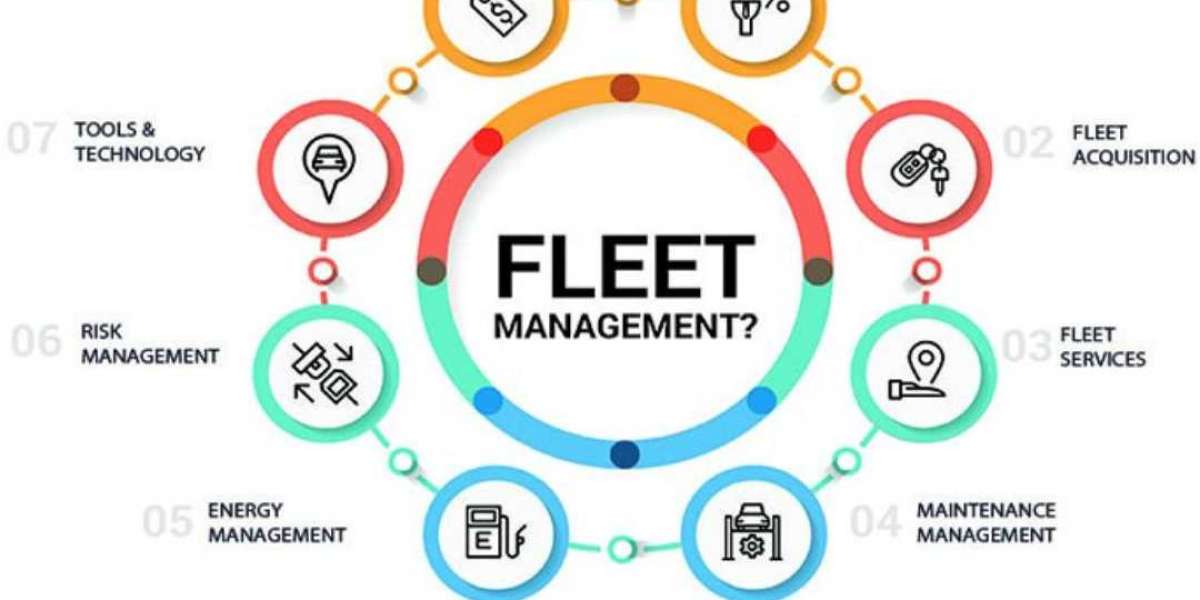Outline
Introduction
- Importance of Fleet Management
- Role of GPS Tracking Software
- Overview of Key Players: Secure Path Premium and Shahin Sira Dubai
Understanding Fleet Management Systems
- Definition and Components
- Historical Evolution
- Importance in Modern Logistics
GPS Tracking Software: An Overview
- Definition and Functionality
- Historical Background
- Key Features
Benefits of GPS Tracking Software in Fleet Management
- Enhanced Vehicle Tracking
- Improved Route Optimization
- Increased Fuel Efficiency
- Real-Time Monitoring
- Enhanced Security Measures
- Better Customer Service
- Compliance and Reporting
- Cost Savings
Secure Path Premium: A Case Study
- Company Background
- Key Features and Offerings
- Success Stories
Shahin Sira Dubai: A Case Study
- Company Background
- Key Features and Offerings
- Success Stories
Implementing GPS Tracking Software in Your Fleet
- Steps to Choose the Right Software
- Integration with Existing Systems
- Training and Support
Challenges and Solutions
- Common Challenges
- Addressing Privacy Concerns
- Overcoming Technical Issues
Future Trends in Fleet Management and GPS Tracking
- Advancements in AI and Machine Learning
- Integration with IoT
- Predictive Analytics
- Autonomous Vehicles
FAQs
- What is the best GPS tracking software for fleet management?
- How does GPS tracking software save costs?
- Can GPS tracking improve driver safety?
- Is GPS tracking software compatible with all types of vehicles?
- What are the privacy implications of using GPS tracking software?
- How does GPS tracking help in route optimization?
Conclusion
- Recap of Key Points
Content
Introduction
Importance of Fleet Management System
Fleet management system is a critical component for businesses that rely on transportation, such as logistics companies, delivery services, and public transportation. Effective fleet management ensures that vehicles are used efficiently, costs are minimized, and customer satisfaction is maximized. With the increasing complexity of logistics and transportation networks, the need for advanced tools and technologies to manage fleets has never been greater.
Role of GPS Tracking Software
GPS tracking software has revolutionized the way fleets are managed. By providing real-time data on vehicle locations, speeds, and routes, GPS tracking software enables fleet managers to make informed decisions that enhance efficiency, reduce costs, and improve safety. It serves as a backbone for modern fleet management systems, integrating with various other tools and technologies to provide a comprehensive solution.
Overview of Key Players: Secure Path Premium and Shahin Sira Dubai
Among the many GPS tracking software providers, Secure Path Premium and Shahin Sira Dubai stand out due to their innovative solutions and proven track records. Secure Path Premium offers a range of features tailored to different types of fleets, while Shahin Sira Dubai is known for its advanced technology and user-friendly interface. Both companies provide exemplary case studies of how GPS tracking software can transform fleet management.
Understanding Fleet Management Systems
Definition and Components
A fleet management system is a set of technologies and processes used to manage and coordinate the vehicles used by a business. Key components include vehicle tracking, maintenance management, driver management, fuel management, and compliance tracking. These systems help organizations streamline operations, reduce costs, and enhance overall efficiency.
Historical Evolution
Fleet management has evolved significantly over the years. Initially, it involved manual tracking of vehicles and paper-based records. With the advent of technology, computerized systems replaced manual processes, leading to the development of sophisticated fleet management software. Today, GPS tracking has become a standard feature, providing real-time data and analytics to optimize fleet operations.
Importance in Modern Logistics
In modern logistics, timely delivery and efficient route planning are crucial. Fleet management systems play a vital role in ensuring that deliveries are made on time and resources are used optimally. They help in monitoring vehicle health, managing driver performance, and ensuring compliance with regulations. By leveraging GPS tracking software, businesses can gain a competitive edge in the market.
GPS Tracking Software: An Overview
Definition and Functionality
GPS tracking software uses Global Positioning System (GPS) technology to monitor the location and movement of vehicles. It provides real-time data on vehicle positions, routes taken, speeds, and other critical metrics. This information is accessible through a web-based interface or mobile app, allowing fleet managers to monitor their vehicles from anywhere.
Historical Background
The use of GPS technology in fleet management began in the late 20th century. Initially, GPS tracking was limited to military applications, but it gradually found its way into commercial use. Early GPS tracking systems were bulky and expensive, but advancements in technology have made them more affordable and accessible. Today, GPS tracking is a standard feature in most fleet management systems.
Key Features
Modern GPS tracking software offers a range of features, including:
- Real-time tracking and monitoring
- Route optimization
- Fuel consumption monitoring
- Driver behavior analysis
- Geofencing
- Alerts and notifications
- Reporting and analytics
These features help fleet managers improve efficiency, reduce costs, and enhance safety.
Benefits of GPS Tracking Software in Fleet Management
Enhanced Vehicle Tracking
GPS tracking software provides real-time information on vehicle locations, allowing fleet managers to monitor their vehicles' movements. This helps in ensuring that vehicles are on the right track and prevents unauthorized use. It also enables quick response in case of emergencies or deviations from planned routes.
Improved Route Optimization
By analyzing data from GPS tracking, fleet managers can identify the most efficient routes for their vehicles. This helps in reducing travel time, saving fuel, and ensuring timely deliveries. Route optimization also contributes to reducing wear and tear on vehicles, extending their lifespan.
Increased Fuel Efficiency
GPS tracking software provides insights into fuel consumption patterns, helping fleet managers identify areas where fuel usage can be optimized. By monitoring driving behavior, such as idling and speeding, fleet managers can implement strategies to reduce fuel consumption, leading to significant cost savings.
Real-Time Monitoring
Real-time monitoring allows fleet managers to keep track of their vehicles' status at all times. This includes monitoring vehicle speed, location, and performance. Real-time data helps in making informed decisions, improving operational efficiency, and ensuring the safety of drivers and cargo.
Enhanced Security Measures
GPS tracking software enhances the security of fleet vehicles by providing features such as geofencing, which sets virtual boundaries for vehicles. If a vehicle crosses these boundaries, alerts are triggered, allowing fleet managers to take immediate action. This helps in preventing theft and unauthorized use of vehicles.
Better Customer Service
With GPS tracking, fleet managers can provide accurate and timely information to customers regarding the status of their deliveries. This improves customer satisfaction and builds trust. Additionally, efficient route planning ensures that deliveries are made on time, further enhancing customer service.
Compliance and Reporting
GPS tracking software helps in ensuring compliance with various regulations, such as hours of service (HOS) and electronic logging device (ELD) requirements. It also generates detailed reports on vehicle usage, driver behavior, and fuel consumption, aiding in regulatory compliance and performance analysis.
Cost Savings
By optimizing routes, improving fuel efficiency, and reducing unauthorized use of vehicles, GPS tracking software helps in significantly reducing operational costs. Additionally, it reduces the administrative burden by automating various tasks, allowing fleet managers to focus on more strategic activities.
Secure Path Premium: A Case Study
Company Background
Secure Path Premium is a leading provider of GPS tracking software, known for its innovative solutions and customer-centric approach. The company offers a range of products tailored to different types of fleets, from small businesses to large enterprises.
Key Features and Offerings
Secure Path Premium provides a comprehensive suite of features, including:
- Real-time tracking and monitoring
- Route optimization
- Fuel consumption monitoring
- Driver behavior analysis
- Geofencing
- Alerts and notifications
- Reporting and analytics
The software is designed to be user-friendly, with an intuitive interface that allows fleet managers to easily access and interpret data.
Success Stories
Secure Path Premium has helped numerous businesses improve their fleet management operations. For example, a logistics company using Secure Path Premium reported a 20% reduction in fuel costs and a 15% increase in on-time deliveries. Another company saw a significant improvement in driver safety and compliance with regulations.
Shahin Sira Dubai: A Case Study
Company Background
Shahin Sira Dubai is a prominent player in the GPS tracking software market, offering advanced technology and a robust platform for fleet management. The company is known for its commitment to innovation and customer satisfaction.
Key Features and Offerings
Shahin Sira Dubai's GPS tracking software includes:
- Real-time tracking and monitoring
- Route optimization
- Fuel consumption monitoring
- Driver behavior analysis
- Geofencing
- Alerts and notifications
- Reporting and analytics
The software is highly customizable, allowing businesses to tailor it to their specific needs.
Success Stories
Shahin Sira Dubai has a track record of helping businesses achieve significant improvements in their fleet management operations. For instance, a delivery service company using Shahin Sira Dubai's software reported a 25% increase in delivery efficiency and a 30% reduction in fuel costs. Another business experienced enhanced security and reduced vehicle theft incidents.
Implementing GPS Tracking Software in Your Fleet
Steps to Choose the Right Software
- Assess Your Needs: Identify the specific requirements of your fleet, such as the number of vehicles, types of routes, and key performance indicators.
- Research Providers: Evaluate different GPS tracking software providers based on their features, pricing, and customer reviews.
- Request Demos: Get demonstrations of shortlisted software to understand their functionality and ease of use.
- Compare Costs: Analyze the cost of the software, including initial setup, subscription fees, and any additional charges.
- Make a Decision: Choose the software that best meets your needs and budget.
Integration with Existing Systems
Integrating GPS tracking software with your existing fleet management systems is crucial for seamless operations. This involves ensuring compatibility with other tools and technologies, such as dispatch systems, maintenance software, and telematics devices.
Training and Support
Proper training and support are essential for the successful implementation of GPS tracking software. Ensure that your team is well-trained on how to use the software and leverage its features. Additionally, choose a provider that offers robust customer support to address any issues that may arise.
Challenges and Solutions
Common Challenges
Implementing GPS tracking software can present several challenges, including technical issues, resistance to change, and data privacy concerns.
Addressing Privacy Concerns
Privacy is a significant concern when it comes to GPS tracking. It is important to establish clear policies regarding data usage and ensure compliance with privacy regulations. Communicating transparently with employees about the benefits and safeguards of GPS tracking can help mitigate concerns.
Overcoming Technical Issues
Technical issues such as software glitches and connectivity problems can hinder the effectiveness of GPS tracking. Choosing a reliable provider with robust technical support and investing in quality hardware can help overcome these challenges.
Future Trends in Fleet Management and GPS Tracking
Advancements in AI and Machine Learning
AI and machine learning are poised to revolutionize fleet management by enabling predictive analytics, automated decision-making, and advanced route optimization.
Integration with IoT
The Internet of Things (IoT) allows for greater connectivity and data sharing between vehicles and fleet management systems, enhancing overall efficiency and performance.
Predictive Analytics
Predictive analytics can help fleet managers anticipate maintenance needs, optimize routes, and improve fuel efficiency by analyzing historical data and identifying patterns.
Autonomous Vehicles
The advent of autonomous vehicles will bring significant changes to fleet management, including reduced labor costs, enhanced safety, and improved efficiency. GPS tracking will play a critical role in monitoring and managing autonomous fleets.
FAQs
What is the best GPS tracking software for fleet management?
The best GPS tracking software for fleet management depends on the specific needs and requirements of your fleet. Leading providers like Secure Path Premium and Shahin Sira Dubai offer comprehensive features and robust performance, making them excellent choices for various fleet types.
How does GPS tracking software save costs?
GPS tracking software saves costs by optimizing routes, improving fuel efficiency, reducing unauthorized vehicle use, and automating administrative tasks. These improvements lead to significant reductions in operational expenses.
Can GPS tracking improve driver safety?
Yes, GPS tracking can improve driver safety by monitoring driving behavior, such as speeding, harsh braking, and rapid acceleration. Fleet managers can use this data to implement training programs and encourage safer driving practices.
Is GPS tracking software compatible with all types of vehicles?
Most GPS tracking software is compatible with a wide range of vehicles, including cars, trucks, buses, and specialized vehicles. It is essential to check with the provider to ensure compatibility with your specific fleet.
What are the privacy implications of using GPS tracking software?
Privacy implications of GPS tracking software include concerns about employee surveillance and data usage. It is crucial to establish clear policies, communicate transparently with employees, and ensure compliance with privacy regulations to address these concerns.
How does GPS tracking help in route optimization?
GPS tracking helps in route optimization by analyzing real-time and historical data to identify the most efficient routes. This reduces travel time, saves fuel, and ensures timely deliveries, enhancing overall fleet efficiency.
Conclusion
Recap of Key Points
GPS tracking software is a vital tool for modern fleet management, offering numerous benefits such as enhanced vehicle tracking, improved route optimization, increased fuel efficiency, real-time monitoring, and better customer service. Leading providers like Secure Path Premium and Shahin Sira Dubai offer comprehensive solutions that can transform fleet operations.



